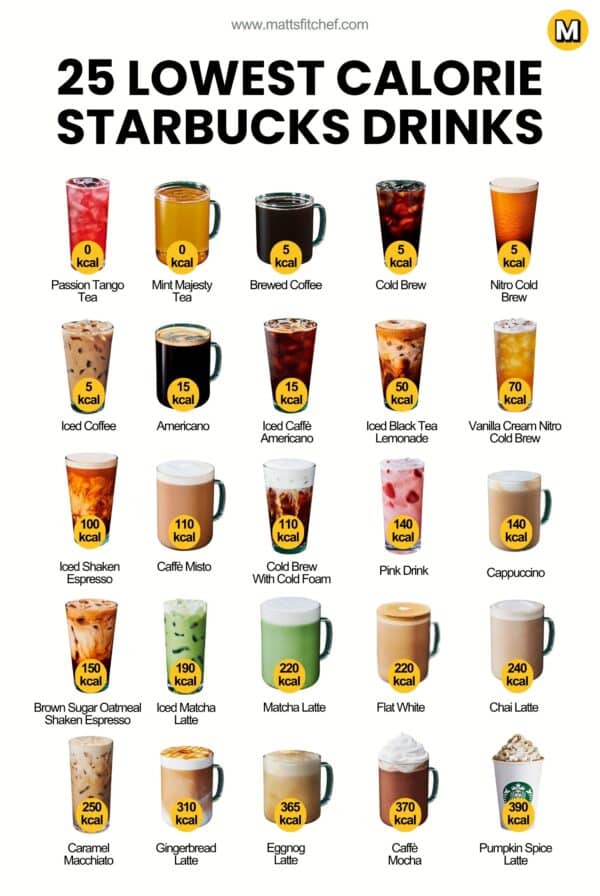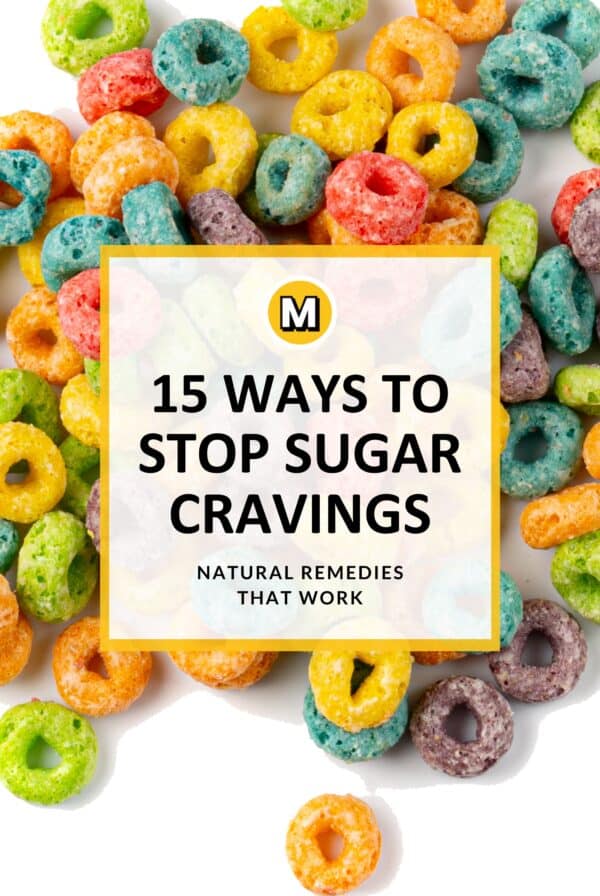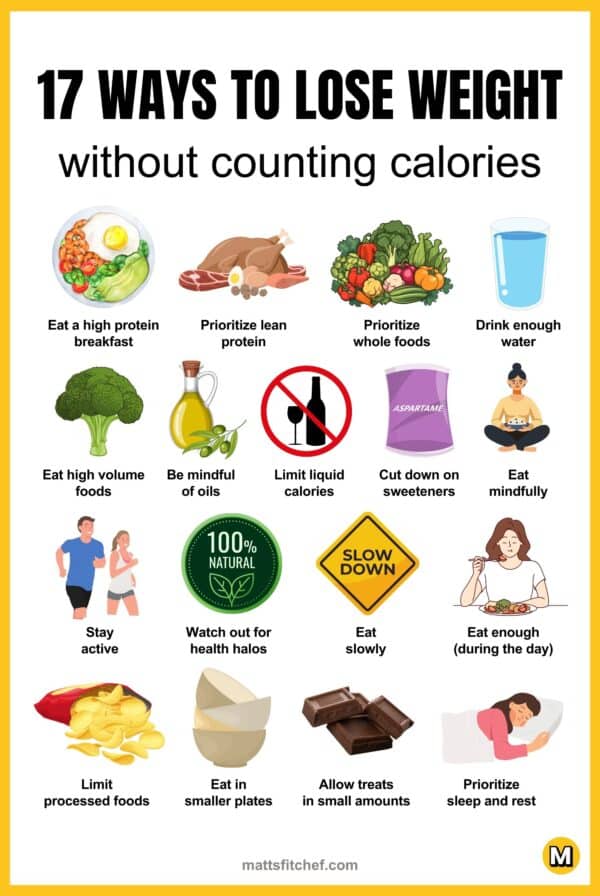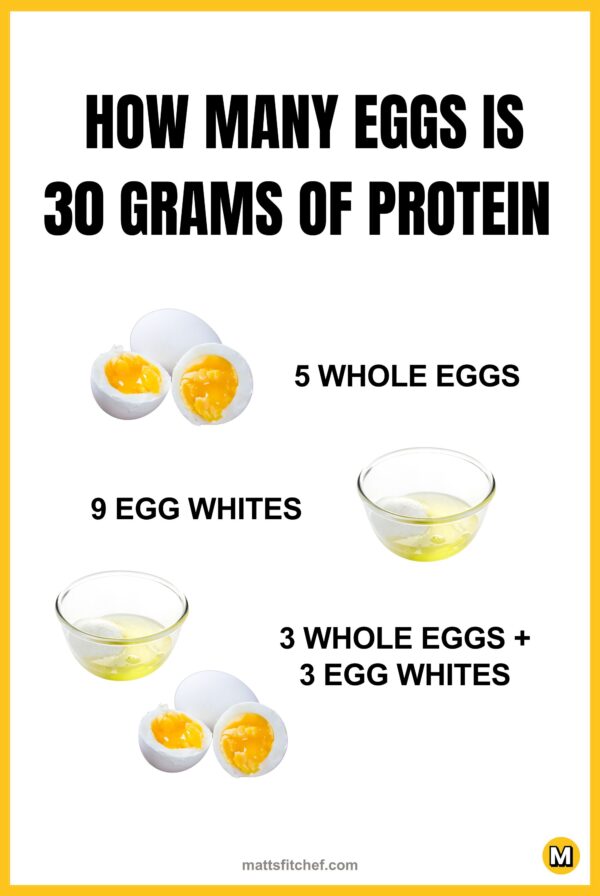As an Amazon Associate I earn from qualifying purchases.
Eating before a workout improves your performance and recovery, ensuring that you get the most out of your training sessions. When it comes to the Pre Workout Snack, food choices matter.
What, when and how much you eat has a significant impact on training quality. If you eat the right foods, you will feel energized, fueled and motivated. On the other hand, a suboptimal pre gym snack may slow digestion and leave you sluggish.
In this article, you are going to learn everything on how to make the best pre workout snack. Read until the end for a list of 30 easy recipes reviewed by a certified nutrition coach.
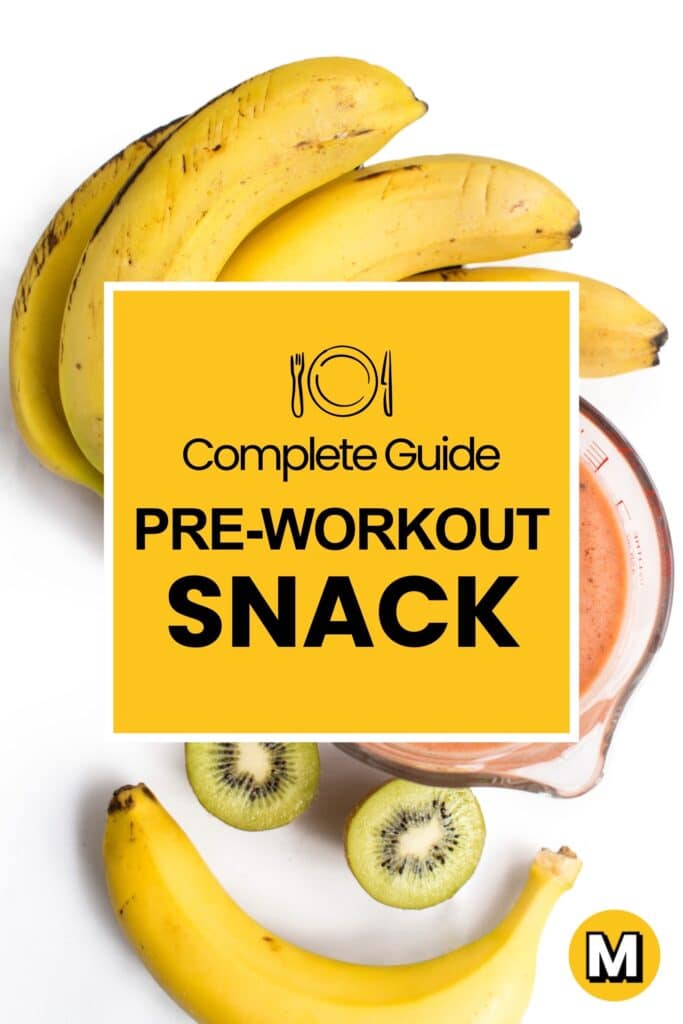
Before we get started remember: this blog post is for informative purposes only. You should always consult a doctor or dietitian for precise nutritional advices.
Why eating before a workout?
Whether you lift weights or you run, pre workout nutrition is crucial. A pre training snack or meal gives you enough nutrients and energy to sustain the efforts and perform at your full potential. Additionally, recent studies show that eating before exercising may prevent the breakdown of muscle mass, catabolism, and boost the immune system.
Without proper fueling, you may feel fatigued and exhausted well before the workout is over. This will make it harder for you to progress and reach your fitness goals, weight it’s weight loss or muscle building.
What to eat before a workout?
The macronutrient composition of your meal becomes yet more important in the context of pre workout nutrition. Carbohydrates, protein and fats have different properties and so a different impact on performances.
Carbohydrates
- The role of carbohydrates. Carbs are the body’s preferred source of energy. When you eat high carb foods, your body breaks them down into molecules of glucose which are then stored in the muscle and in the liver as glycogen. During high intensity training, your body taps on the stored glycogen for instant energy. After consuming all the glycogen, your organism will resort to other sources of energy such as stored lipids or protein. But these energy sources are less optimal, so you won’t be as efficient as before.
- Types of carbohydrates. In nutritional science, we distinguish between complex carbs and simple carbs. Complex carbohydrates take longer to digest and provide energy over a longer period of time. Slow-releasing carbs are usually foods which are higher in fibers, such as oats, whole grain bread, quinoa and sweet potatoes. On the other hand, simple carbohydrates are quicker to digest and provide an instant shot of energy. The main sources of simple carbs are usually sugary fruits such as bananas or mangos, energy drinks and cereals which aren’t whole grains.
- Summary. Eating high carb foods before a workout ensures you have enough glycogen in your organism to perform at maximum capacity. Both complex and simple carbs (provided that they are not from added sugars) have benefits, depending on how much is missing to your next training. Slow-releasing carbohydrates are better consumed 2 to 4 hours ahead, while easy-to-digest carbs should be the focus right before hitting the gym.
Protein
From increasing muscle mass to promoting satiety, the benefits of eating protein are backed by several studies. In the specific context of workout nutrition, protein helps your body recover faster and build lean muscle while preventing catabolism.
Although consuming enough protein is key—especially if your goal is to build muscle, their role becomes less important as we move closer to our training session. Since they take longer to digest, protein foods should be eaten at least 1 to 2 hours prior to exercising. If consumed within 1 hour to 30 minutes, a good pre workout snack should have mainly carbs but little protein to avoid digestive issues and cramps.
Fats
Fats are indeed essential for health. However, their importance becomes less relevant as we get closer to our training. Fats take much longer to digest, which can leave you sluggish and heavy while lifting weight or running. They can safely be eaten 3 to 4 hours ahead, without digestive issues. But they are not recommended for when you need a quick pre workout boost.
A good point to mention is that fats provide plenty of energy (9 kcal/ g). Although not the preferred source of energy for high intensity workouts, they are used for fuel once glycogen storages are over. Especially in the case of low-intensity endurance training like long distance running.
When to eat before exercising?
As we have seen before, different macronutrients have different impacts on digestion and performance. If you have a complete meal, it’s best to wait 3 to 4 hours. The closer we move to our session, the more the focus on easy-to-digest carbs. Fats and protein slow digestion. When you exercise, your muscles need blood for energy, but digestion also requires blood, which can impact your performance. To avoid this, here’s how to adapt your pre workout snack based on timing.
- 3 to 4 hours before – You can safely eat a balanced meal with carbs, protein and fats. Whole grain rice with chicken or baked tofu, and sweet potato with slalom are great options.
- 2 to 3 hours before – If there are still a couple of hours before training, your snack should have plenty of complex carbohydrates and lean protein. Some healthy fats are okay. But to prevent digestive issues, it is recommended to avoid foods that are too high in fats.
- 1 to 2 hours before – As we are getting closer to your workout, you should limit fats in favor of other macronutrients. In this case, a good pre workout snack should have a mix of carbohydrates and protein. Greek yogurt with oats, homemade protein granola bars or a smoothie are great options.
- 1 hour to 30 minutes before – If many hours have passed since your last meal or if you need an early morning pre workout snack, simple carbs such as bananas or dates are ideal. Liquid carbohydrate drinks are also great. Limit protein and try to avoid fats, as they require longer digestion times.
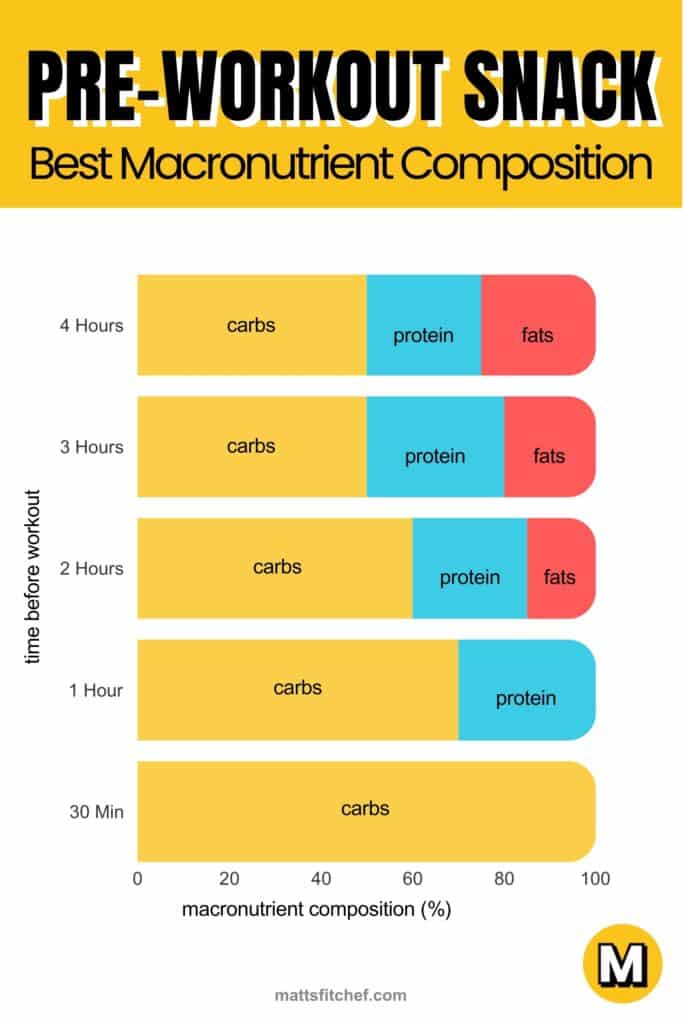
What are the best foods to eat before exercise?
After seeing what to eat and when, in the following table you will find a list of the best pre workout foods based on the time. Take these examples as inspiration, and adapt them to your preferences. In the end, you should only eat what your body can digest well. Don’t experiment with trying new foods before hitting the gym, we don’t want any surprise.
| When to Eat | What to Eat | Best Foods |
|---|---|---|
| 4 – 3 hours before | Complete meal with complex carbohydrates, protein and healthy fats | Rice with chicken and vegetables, tuna pasta salad, salmon pasta, baked sweet potatoes with steak, tofu rice bowl, protein oatmeal with fruit and nut butter |
| 3 – 2 hours before | A mix of complex carbohydrates and lean protein with some healthy fats | Oatmeal with fruit and Greek yogurt, Greek yogurt and cereal, peanut butter banana toast, protein pancakes, oatmeal breakfast bars and yogurt, protein bagels with scrambled eggs |
| 1 – 2 hours before | Mainly complex carbs and some protein, limited amount of fats | Smoothie, protein shake, (homemade) protein bars, Greek yogurt with fruit, homemade protein pudding, pita and hummus, milk with cornflakes, dry cereal and yogurt, cottage cheese and berries |
| 1 hour – 30 minutes before | Simple carbs, limited protein and (almost) no fats | Banana, apple, mango, dried fruit, dates, energy drinks, fruit bars |
How much to eat?
How large your snack should be depends on many factors, such as energy requirement, metabolism, fitness goals, preferences, time prior to exercise and much more. There are however some guidelines:
- 1 hour before training aim for about 1 g of carbohydrate per kilogram of body weight, reduce protein as you move closer to your workout.
- 2 hours before training aim for about 2 g of carbs per kilogram of body weight and a total of 10 – 20 grams of protein.
- 3 hours before training aim for about 3 g of carbs per kilogram of body weight and around 20 grams of protein.
30 pre-workout snack ideas
Here are some healthy snack and meal ideas to eat before your workout. All recipes are ranked according to how much time you have before exercising.
3 to 4 hours before a workout:
- Brown rice with chicken breast and broccoli
- Pasta with tofu and veggies
- Seitan noodle stir fry
- Protein oatmeal with peanut butter and banana
- Chicken avocado wrap
- Baked sweet potato and salmon
- Tuna pasta salad
1 to 2 hours before a workout:
- Greek yogurt with blueberries and homemade protein granola
- Whipped cottage cheese and banana
- Apple with hard boiled eggs
- Sandwich with lean ham, sliced tomatoes and lettuce
- Homemade protein bagels with light cheese
- Homemade protein granola bars
- Protein muffin with Greek yogurt
- Low calorie pancakes
- Peanut butter banana toast
- Dates stuffed with peanut butter
- Banana with dark chocolate
- Protein bar
- Homemade protein balls
1 hour to 30 minutes before a workout:
- Banana
- Apple
- Mango
- Fresh berries
- Smoothie
- Dried fruit
- Energy bars
- Homemade apple chips
- Dates
- Juice
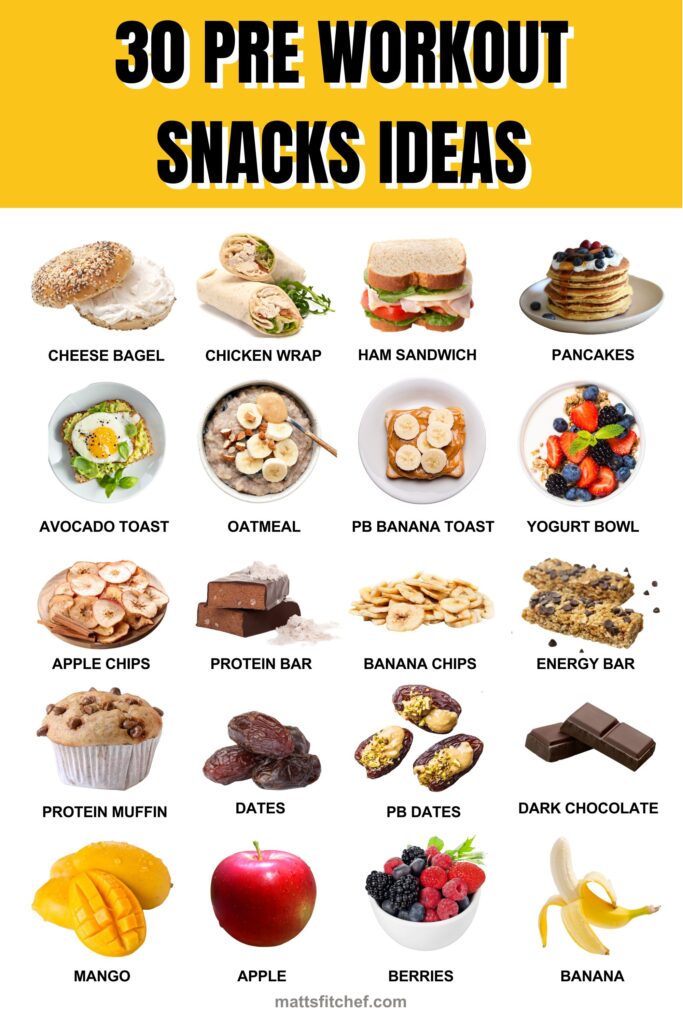
Nutrition coach tips
- Listen to your body. We are all unique in how we like, tolerate and digest foods. Some people may perform better after getting in some food, others may prefer training on an emptier stomach. These are recommendations, but in the end you are the only one who truly knows what works best for you.
- Consider caffeine before hitting the gym. Pre-workout caffeine may improve performances, boost cognitive functions and may also promote fat loss. A black coffee, a protein coffee or an espresso are great. But steer clear of sugary drinks and artificial caffeine supplements.
- Stay flexible. It’s okay sticking to your diet, but at the same time you should not be too rigid with routines. If one day you feel particularly tired and need extra carbs, go for it. If you usually have a banana before a morning workout but you still feel full from the previous night, listen to your body.
Frequently asked questions
The principles for pre-workout nutrition remain the same, even when your goal is fat loss. Timing, food choices, and meal composition are all key factors to consider. However, when trying to lose weight, portion control is important. Weight loss requires a calorie deficit, meaning you need to consume fewer calories than you burn. As long as this deficit is maintained, you’ll be on track.
There is no magic food that helps you build muscle. To gain weight, you should eat more calories than your body burns, either by increasing portion sizes, consuming more high calorie foods, or eating more frequently. So, follow the guidelines in this article while maintaining a calorie surplus.
You probably don’t have much time to cook and eat a full meal. Having a quick snack is still recommended, especially in the case of strength training. Bananas, shakes, smoothies, dates, energy bars or energy drinks can be a good early morning pre workout snack. They give you energy without overloading digestion.
Bananas, apples, dried fruit, protein shakes, protein bars, oatmeal breakfast bars and homemade protein balls will give you quick energy without overloading the stomach. These foods are also very handy, so you can fit them in your gym bag.
Bananas are probably one of the best foods to eat before exercising. They are easy to digest, provide a quick energy boost from natural sugars, and are packed with essential nutrients like potassium. However, there’s no one-size-fits-all “best” food. The choice depends on your individual preferences, nutritional needs, and how your body responds to certain foods.
To prevent digestive issues, avoid high-fat foods (such as fast food or mac and cheese), snacks with added sugars or artificial sweeteners, and carbonated drinks like soda. Shortly before training, you shouldn’t be eating high-fiber foods and large meals because they require long to digest.
No, eating a snack before physical activity is not always necessary. If you’ve had a large meal some hours ago, you probably already have enough nutrients to sustain your efforts. However, if you’re training on an empty stomach or haven’t eaten for several hours, a small meal can boost performances. You should always listen to your body. If you’re hungry, go ahead and eat something. If not, don’t force yourself to eat.
A banana, Greek yogurt with blueberries or a smoothie will give you energy without digestive issues. Since running requires plenty of glycogen, make sure you load up on carbohydrates.
Summary – What to eat before training?
The right pre workout snack can improve performance and recovery. Focus on having carbohydrates for energy, moderate protein for muscle support, and limit fats close to exercise. Nutrient timing matters — eat larger, balanced meals a few hours before, and opt for lighter, easy-to-digest snacks closer to your workout.
